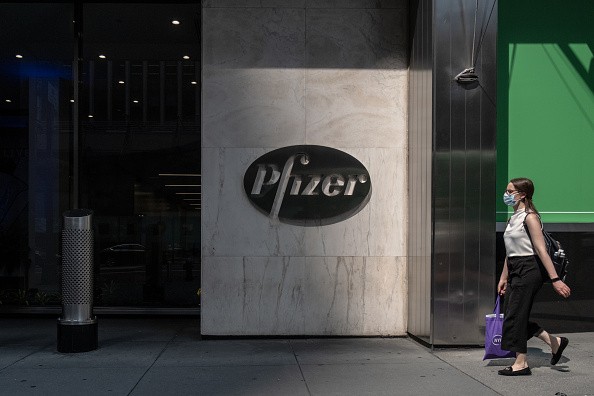Pfizer First to Seek Emergency Use of COVID-19 Vaccine in US
Pfizer is the first to seek an emergency use authorization from the U.S. Food and Drug Administration (FDA) for its coronavirus vaccine.

The company filed its application to the FDA on Friday, seeking clearance for an experimental shot expected to play an essential role in an immunization effort to stop the virus' spread.
The U.S. drugmaker developed the COVID-19 vaccine with its German partner BioNTech SE.
According to Bloomberg, once the application is approved, Americans would have access to the vaccine even before its full approval. But it would likely be made available on a limited basis to health workers and the elderly.
Earlier this week, Pfizer announced its experimental vaccine was 95 percent effective in protecting people of all ages and ethnicities from acquiring coronavirus. The vaccine relies on messenger RNA technology that has never been used before in an approved medicine.
So far, Pfizer claimed that there had been no significant safety issues in the trial that includes almost 44,000 participants. The FDA is expected to review the data in the next few weeks.
According to the FDA, an advisory committee meeting to review the vaccine has been tentatively scheduled for Dec. 10. Thus, the vaccine could be available by the end of the year.
Read also: Pfizer COVID-19 Vaccine 95% Effective, Plans to Seek Approval From FDA 'Within Days'
When the emergency authorization filing was announced, Pfizer Chief Executive Officer Albert Bourla said in a video: "Today we were able to submit a very robust data set that we believe meets and, in many cases, exceeds the FDA's high standards."
It took only 248 days from when the U.S drugmaker announced its collaboration with BioNTech to approach the U.S. regulators for an emergency authorization, Bourla noted.
The Pfizer-BioNTech project is the only one among the vaccine front-runners that did not get any funding from the White House-led Operation Warp Speed program to accelerate the development, distribution and manufacturing of COVID-19 vaccines.
But the two companies secured a $2 billion deal to supply 100 million doses to the government, with an option to add 500 million more.
Keeping vaccine at subarctic temperatures during transport
According to the data presented to the National Academy of Medicine this week, 25 million doses of Pfizer COVID-19 vaccine may become available on December, 30 million in January, and 35 million in February and March. The recipients of the vaccine should have two doses three weeks apart.
CBS News reported that Pfizer's vaccine needs a storage temperature that is the same with "the coldest places on Earth." Pfizer's vaccine requires storage with 94 degrees below zero Fahrenheit.
Dry ice could help maintain the subarctic temperature during shipping, as per the CBS report. Pfizer has already developed a thermal shipper called "cool box" for the shipping. Its size is similar to a carry-on suitcase.
Tanya Alcorn, vice president of Pfizer's BioPharma Global Supply Chain, said there's dry ice that goes around it, and it has a device that monitors temperature with continuous GPS.
Each "cool box" could store around 1,000 COVID-19 vaccine doses, posing a challenge for rural communities with no place to keep them.
Read also: Pfizer to Seek FDA Approval for COVID-19 Vaccine After Election
Subscribe to Latin Post!
Sign up for our free newsletter for the Latest coverage!
















